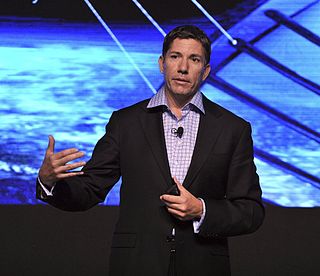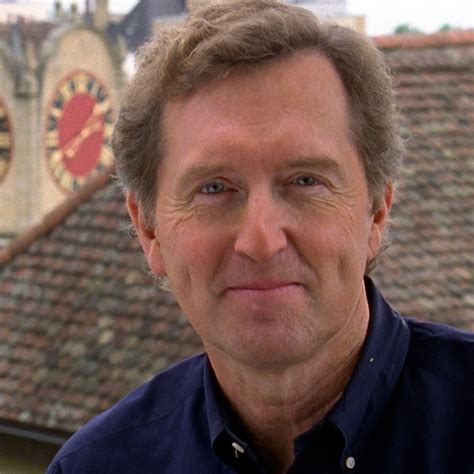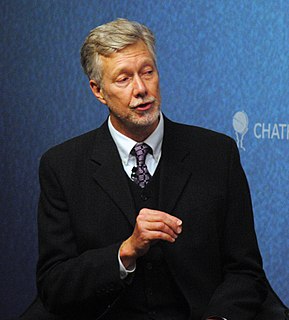A Quote by Stuart L. Hart
Roughly two billion people participate in the money economy, with less than half of those living in the wealthy countries of the developed world. These affluent 800 million, however, account for more than 75 percent of the world's energy and resource consumption, and also create the bulk of its industrial, toxic, and consumer waste.
Related Quotes
The United States is the most indebted country in the world. It has almost 17 billion dollars of debt with the rest of the world while living off the world's savings. They are living off the savings of the people of Greece, the savings of the people of Spain, France etc. All of those countries that save their reserves in the banks in dollars are simply financing the American economy, and that is why the average American citizen consumes two and a half times more than their income.
For half of the world's population, roughly three billion people around the world living on less than two dollars a day, an election is at best a means, not an end; a starting point, not deliverance. These people are looking less for an "electocracy" than for the basic elements that for most of us define a decent life--food, shelter, electricity, basic health care, education for their children, and the ability to make their way through life without having to endure corruption, violence, or arbitrary power.
At the beginning of the 20th century, there were less than 3 billion people on the earth, closer to 2 billion. By all measures that we can come up with right now,. with the lifestyle and consumption pattern of the Western industrial civilization, we can probably sustain about 2 billion people on this earth. We already have over 6 billion. China and India are aspiring to come on as industrial nations, aspiring to the lifestyle of the Western world, and it simply can't happen.
Water is one of the most basic of all needs - we cannot live for more than a few days without it. And yet, most people take water for granted. We waste water needlessly and don't realize that clean water is a very limited resource. More than 1 billion people around the world have no access to safe, clean drinking water, and over 2.5 billion do not have adequate sanitation service. Over 2 million people die each year because of unsafe water - and most of them are children!
The money economy thus leaves a large ecological footprint, defined as the amount of land and resources required to meet a typical consumer's needs. For example, with only about 4% of the world's population, the United States, the largest money economy, consumes in excess of one-quarter of the world's energy and materials and generates in excess of 25 percent of the world's greenhouse gas emissions.
The standard of 'affordable' housing is that which costs roughly 30 percent or less of a family's income. Because of rising housing costs and stagnant wages, slightly more than half of all poor renting families in the country spend more than 50 percent of their income on housing costs, and at least one in four spends more than 70 percent.
However, if we leave the industrial machinery and their energy-distribution networks and leave them also all the people who have routine jobs operating the industrial machinery and distributing its products, and we take away from all the industrial countries all their ideologies and all the politicians and political machine workers, people would keep right on eating. Possibly getting on a little better than before.
Yes, twenty-seven million in slavery is a lot of people, but it is just .0043 percent of the world's population. Yes, $23 billion a year in slave-made products as services is a lot of money but it is exactly what Americans spent on Valentine's Day in 2005. If humans trafficking generates $32 billion in profits annually, that is still a tiny drop in the ocean of the world economy.



































